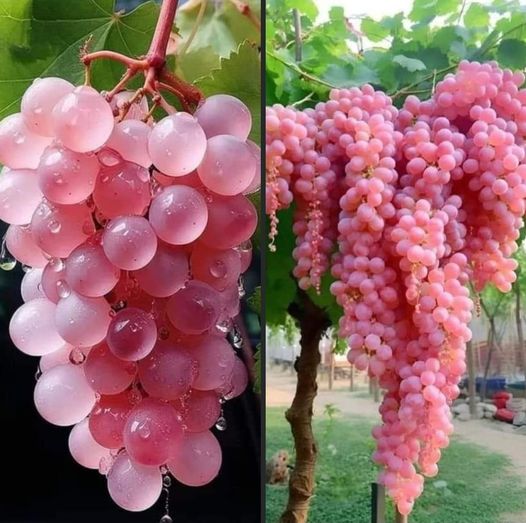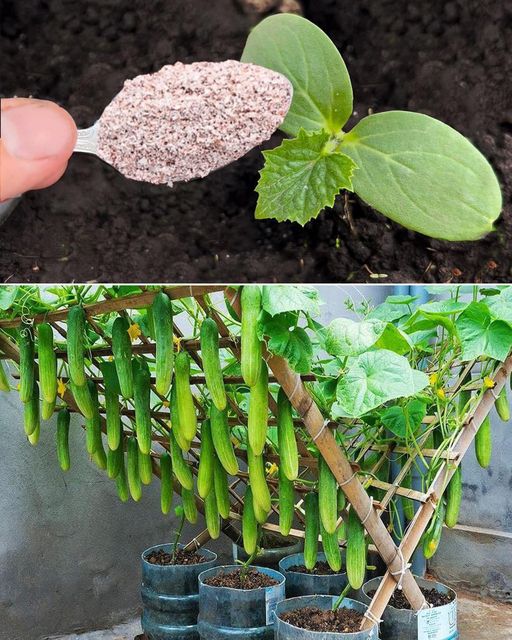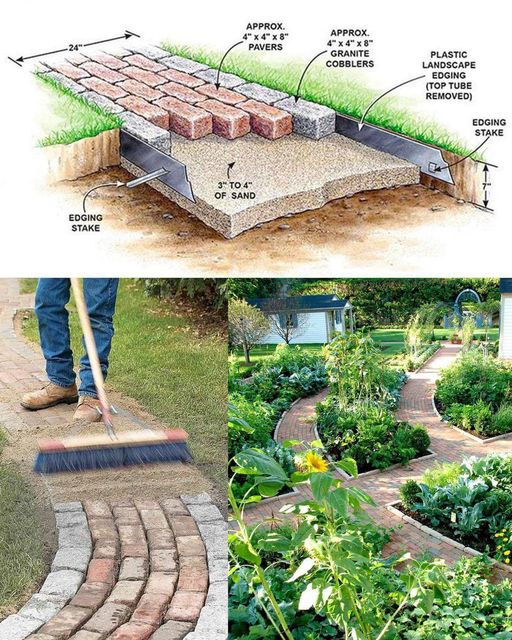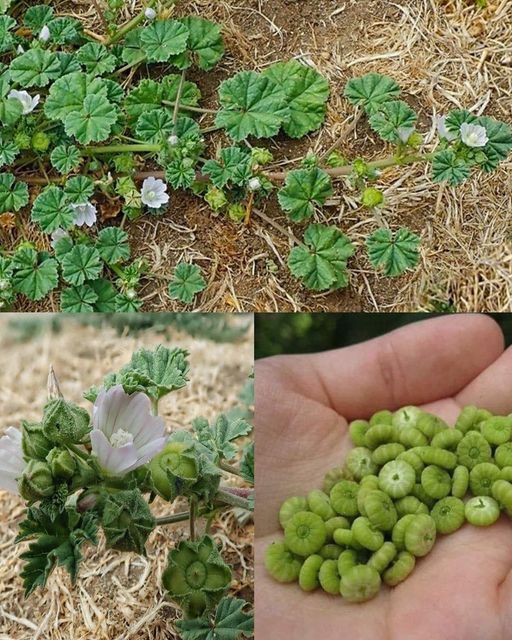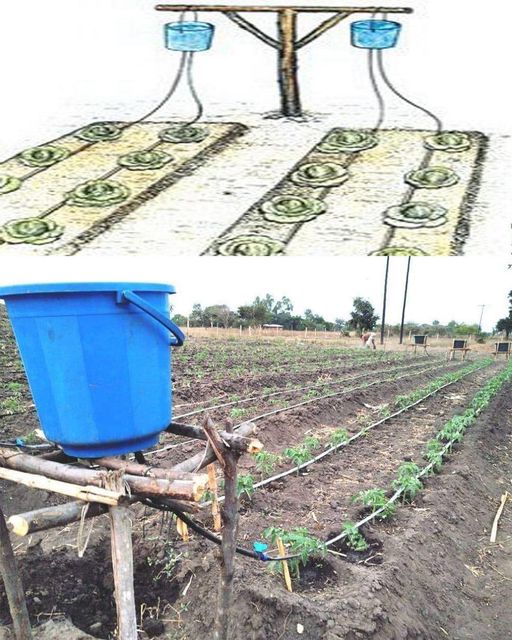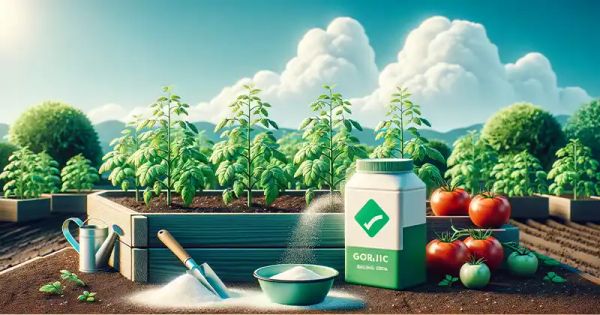
In the world of organic gardening, many of us want to achieve a bountiful harvest without using harsh chemicals. One natural solution that stands out is baking soda. This household staple, scientifically known as sodium bicarbonate, is safe, effective, and affordable for nurturing plants and fighting common garden problems.
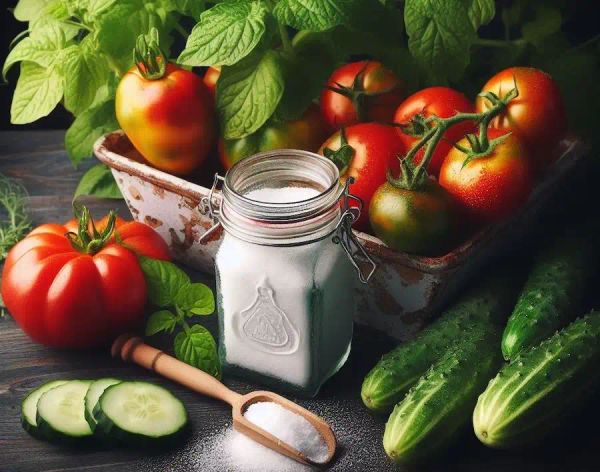
Why Baking Soda?
What makes baking soda special is its simplicity and versatility. It is safe for both humans and plants, making it a great organic warrior against a range of gardening challenges. It can prevent diseases, control pests, and even improve the taste of fruits and vegetables, especially tomatoes.
The Multifaceted Benefits of Baking Soda in the Garden
Preventing Diseases: Baking soda is particularly effective against fungal diseases like potato blight, which can be a big threat to crops. By creating an alkaline environment on plant leaves, baking soda stops the growth of fungal cells, protecting your garden from outbreaks.
Repelling Pests: Applying baking soda can also deter various insects, keeping your plants safe without using chemical pesticides. This safe and non-toxic approach maintains the balance of your garden while keeping pests away.
Improving Plant Health: Regular use of baking soda solutions can strengthen plants, making them more resilient to environmental stressors like temperature fluctuations and diseases. It can also result in sweeter-tasting tomatoes and more vibrant foliage.
Crafting the Perfect Baking Soda Solution
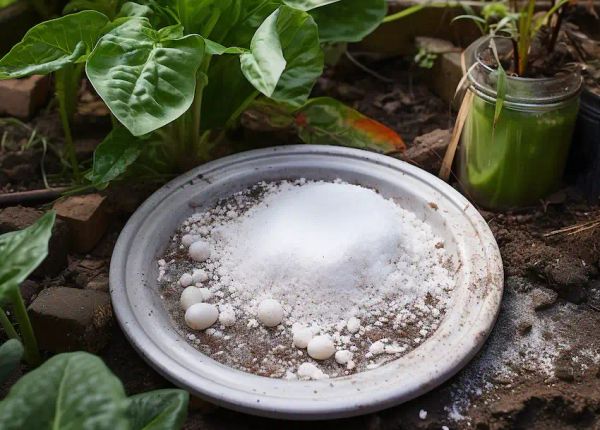
To make the most of baking soda in your garden, you need a balanced solution. Here’s a simple recipe that works:
- Mix 1 tablespoon of baking soda with 4 liters (approximately 1 gallon) of water.
- Add a few drops of organic soap to help the solution stick to plant surfaces. Make sure to use natural soap, like goat’s milk and plant-based, to avoid any chemical contamination.
- Incorporate 1 tablespoon of quality vegetable oil to improve the solution’s effectiveness.
Shake well before use and apply the solution to your plants, covering all surfaces thoroughly. This solution is not only effective but also environmentally friendly, aligning with the principles of organic gardening.
Preventive Measures: Beyond the Spray
While spraying with baking soda solution is helpful, it’s essential to take preventive care to manage diseases and pests in your garden. Here are a few additional steps to strengthen your garden:
Soil Contact: Make sure the lower leaves of plants, like tomatoes, do not touch the soil to prevent fungal spores from spreading to the foliage.
Proper Tying: Avoid using organic ropes for staking plants, as they can harbor fungi. Opt for plastic ropes that do not facilitate the spread of diseases.
Timing Matters
The effectiveness of baking soda treatments can be influenced by weather conditions. For the best results, apply the solution during overcast conditions or in the evening to avoid potential leaf burn under direct sunlight.
A Sustainable Choice
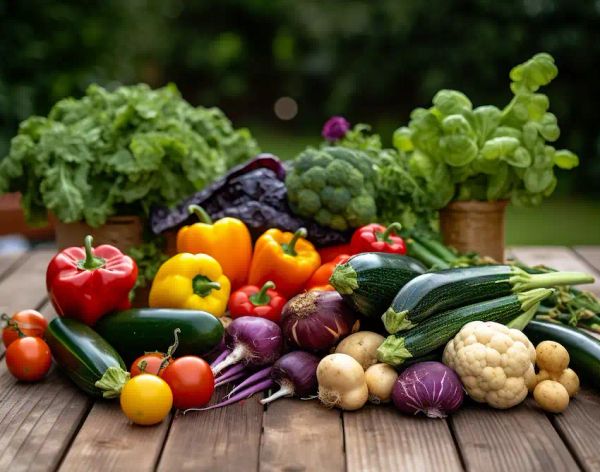
Choosing to use baking soda in your gardening routine not only shows a commitment to sustainability but also allows you to grow healthier, stronger plants. As we strive to live in harmony with nature, integrating simple and natural solutions like baking soda into our gardening practices offers a more sustainable and fruitful experience.
Remember, organic gardening is about working with nature, not against it. By adopting these practices, you contribute to the health of your garden and the well-being of the planet.
Happy gardening!
